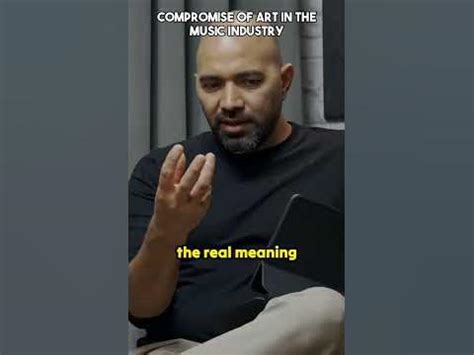Avoiding the Temptation of Compromise in the Music Industry
The music industry is a glittering labyrinth of opportunity and aspiration, but it's also a pressure cooker where artistic integrity often clashes with commercial viability. For aspiring and established musicians alike, the temptation to compromise—to dilute your vision for wider appeal—is a constant battle. This article explores the pervasive nature of this temptation and provides strategies for navigating it successfully, preserving your artistic voice while still achieving your goals.
What Constitutes a Compromise?
Before we delve into strategies, it's crucial to define what constitutes a compromise in the music industry. It's not always about selling out to a major label and releasing a pop-infused album when your heart belongs to indie folk. Compromise can be subtle and insidious, manifesting in various forms:
- Creative Control: This is perhaps the most significant area. Are you forced to change lyrics, melodies, or the overall aesthetic of your music to fit a specific genre or target audience? Giving up control over your artistic vision is a major compromise.
- Artistic Integrity: This relates to the authenticity of your music. Are you sacrificing the essence of your message or your unique style to chase trends or appease industry gatekeepers?
- Musical Collaborations: While collaborations can be incredibly enriching, accepting a collaboration purely for its perceived commercial benefit, rather than a genuine artistic synergy, can lead to diluted work.
- Financial Pressures: The need to generate income can force artists to compromise on projects that don't align with their vision, leading to burnout and creative dissatisfaction.
How to Identify and Resist the Pressure to Compromise
Recognizing the pressures to compromise is the first step towards resisting them. The industry is rife with subtle—and not-so-subtle—suggestions to change your sound or approach. Here are some key indicators:
- Label Pressure: Major labels often have a specific formula for success, and they may push artists to conform.
- Industry Trends: The constant cycle of musical trends can tempt artists to abandon their unique style in favor of something more commercially viable.
- Peer Pressure: The competitive nature of the industry can lead to self-doubt and a desire to emulate successful artists.
- Fan Feedback: While feedback is valuable, allowing it to dictate every creative decision can lead to a loss of artistic identity.
Strategies for Maintaining Artistic Integrity
Successfully navigating the industry requires a strategic approach to maintaining your artistic integrity. Here are several effective strategies:
1. Define Your Artistic Vision
Before you even begin pitching your music, take the time to clearly define your artistic vision. What is the core message you want to convey? What is your unique sound and style? Having a solid foundation will help you resist pressures to compromise.
2. Build a Strong Network of Supporters
Surround yourself with people who believe in your artistic vision. This includes managers, producers, and fellow musicians who will offer constructive criticism without pressuring you to change your style.
3. Develop a Thick Skin
The music industry can be brutal. Rejection is inevitable, and criticism will come from unexpected sources. Developing a thick skin and learning to filter out negative feedback that doesn't align with your vision is crucial.
4. Prioritize Long-Term Vision Over Short-Term Gains
It's tempting to chase quick success, but true longevity in the industry often comes from staying true to your artistic values. Don't sacrifice long-term fulfillment for short-term gains.
5. Understand Your Audience (But Don't Be Dictated By Them)
Connecting with your audience is important. However, understanding their preferences shouldn’t mean abandoning your artistic voice entirely. Finding the sweet spot between artistic expression and audience engagement is a skill to be honed.
The Importance of Staying True to Yourself
Ultimately, avoiding the temptation to compromise boils down to staying true to yourself and your artistic vision. While commercial success is desirable, it should never come at the expense of artistic integrity. A successful career is built on authenticity and passion. By staying true to your vision, you'll not only create meaningful music but also build a lasting career based on genuine connection with your audience.
Frequently Asked Questions (FAQ)
How can I deal with pressure from a record label to change my music?
Negotiating with a record label requires a strong understanding of your artistic vision and the value you bring. Having a well-defined plan, demonstrating your previous successes, and having a strong support system can help you stand your ground.
Is it always wrong to compromise in the music industry?
Compromise isn't always negative. Collaborations, for example, often involve some degree of compromise, but this shouldn’t involve sacrificing your core artistic identity. The key is to discern between beneficial compromises and those that diminish your artistic integrity.
How can I avoid burnout while staying true to my artistic vision?
Setting boundaries, prioritizing self-care, and surrounding yourself with a supportive network are crucial for avoiding burnout. Remember that your well-being is essential for sustainable artistic creation.
What if compromising means more financial stability?
While financial stability is important, it should not be the sole driver of your creative choices. Consider alternative income streams to support your artistic endeavors while maintaining your integrity. The long-term benefits of staying true to your artistic voice often outweigh short-term financial gains.

